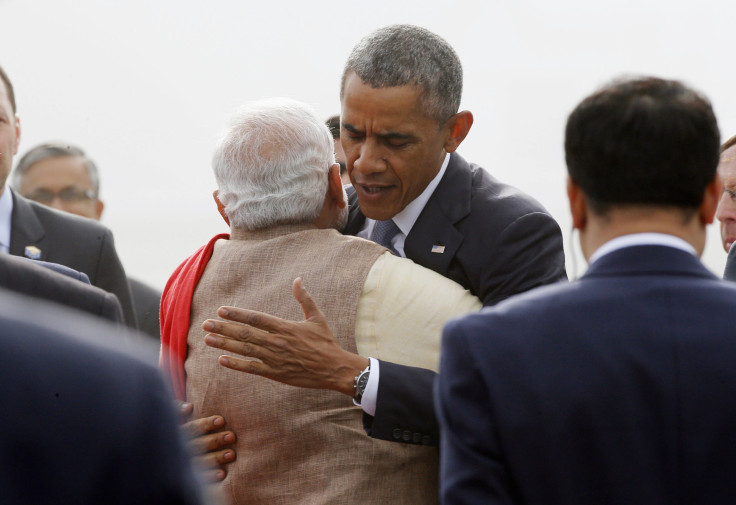Obama Visit To India: Chinese Media Call India-US Relations 'Superficial'

The Chinese media on Monday termed India’s relations with the United States as “superficial” and said that President Barack Obama’s three-day trip to New Delhi was “more symbolic rather than pragmatic.”
Obama's visit to India -- his second as president -- as chief guest at the country's Republic Day celebrations Monday followed a personal invitation from Indian Prime Minister Narendra Modi. The two leaders had earlier met in September in Washington, and the warming of relations between the two democratic powers is being watched closely by India's neighbors. And, the comments from the Chinese media, including state-controlled Xinhua, came even as Chinese leaders congratulated India on the occasion.
“After all, only one year ago, U.S. diplomats were expelled from New Delhi amid widespread public outrage over the treatment of an Indian diplomat in New York and Narendra Modi, India's Prime Minister and then chief minister of Gujarat, was still banned from entering the United States,” Xinhua said.
“Concerning nuclear energy cooperation, Washington and New Delhi have long been engaged in a complicated dance since 2008,” it added, referring to the agreement between the two countries at breaking a deadlock on their civil nuclear agreement, which was finalized more than six years ago.
Other Chinese media too were reportedly unimpressed with the Obama visit and the developing U.S.-India dynamic.
In its commentary, Global Times said that India and China “mustn't fall into trap of rivalry set by the West.”
“The West is egging India on to be fully prepared for "threats" posed by its large neighbor. Considering the fact that both sides still have territorial disputes and will probably have wider engagement at many levels, this so-called rivalry between India and China will not stop making headlines in Western media,” Global Times said. “However, a trap is a trap. Although craftily set, it will be revealed eventually.”
The Global Times added that China and India “must keep in mind that their relations cannot take a life-or-death struggle as a foothold,” and that the “common interests they share are way larger than any differences.”
According to the BBC, The People's Daily quoted observers as saying that both countries seem to be focusing more on mutual benefits than their differences, while The China National Radio observed that Washington has "pinned high hopes on Delhi."
© Copyright IBTimes 2024. All rights reserved.



















